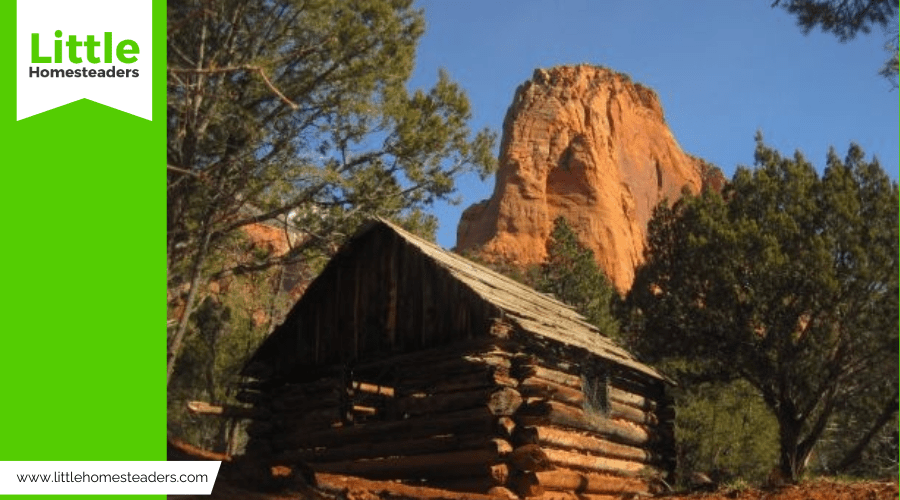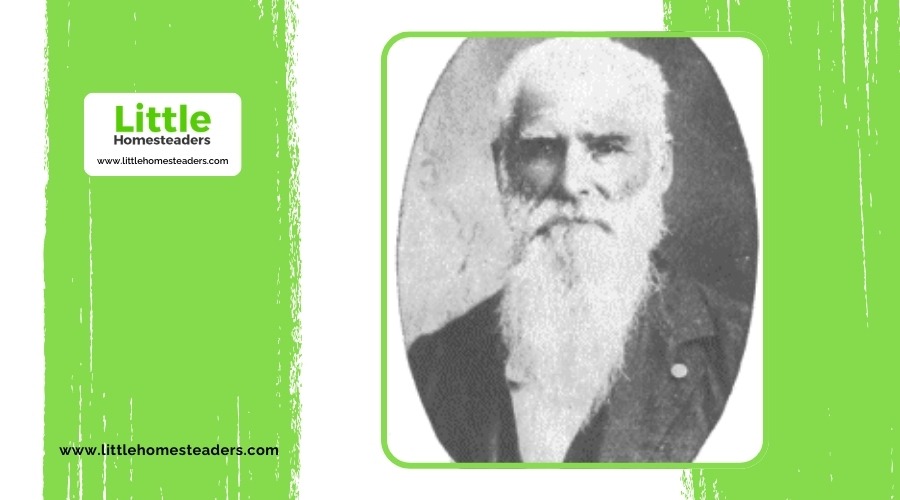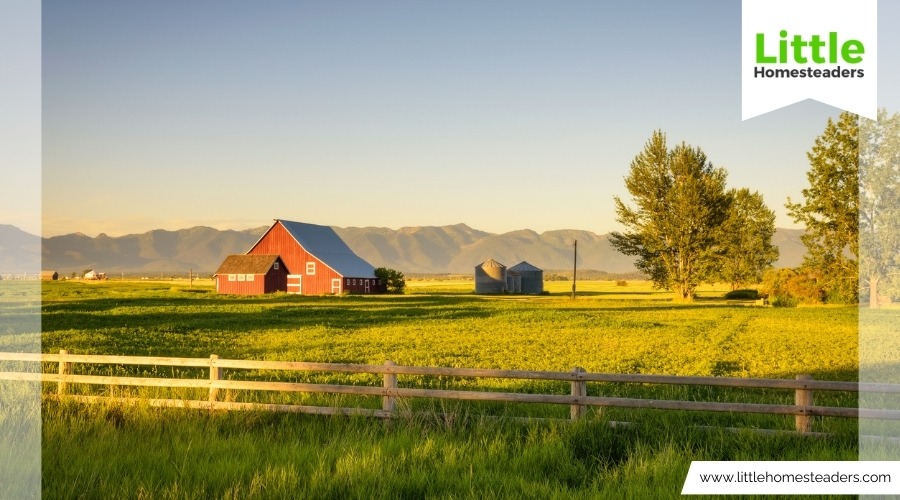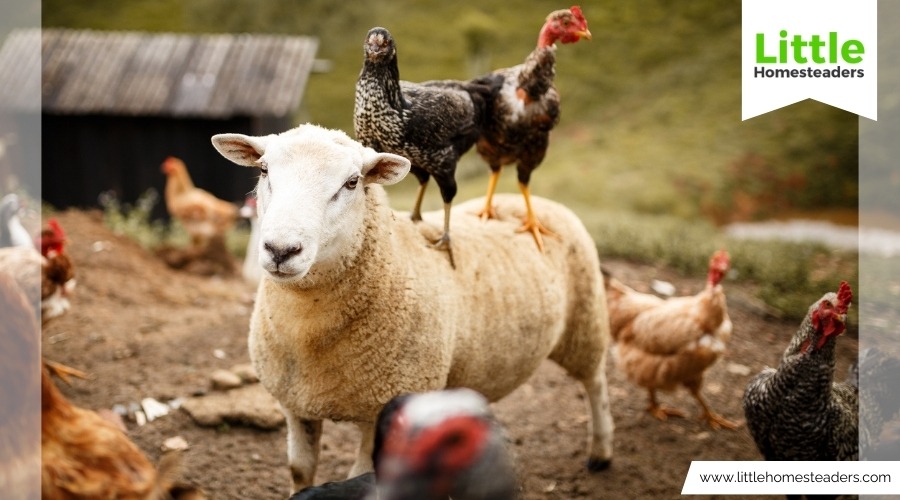Top Dog Breeds for Homestead Life: Finding the Right Fit
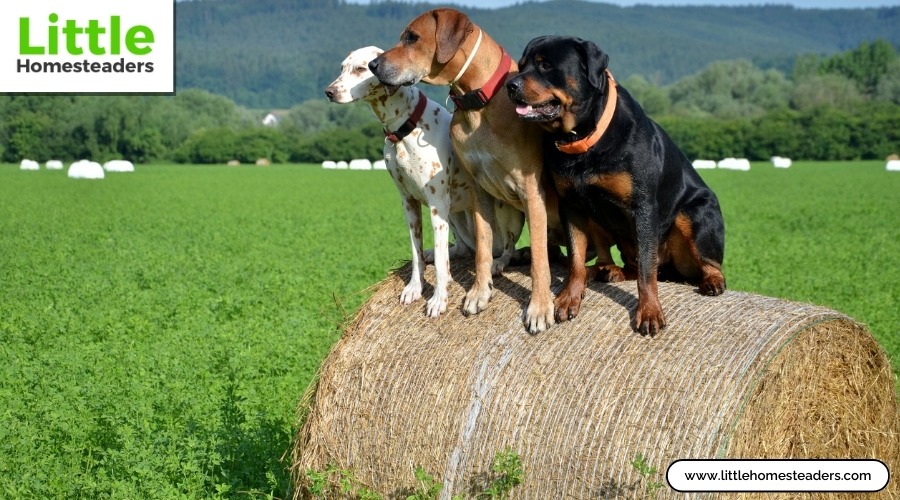
A good dog can make all the difference on a homestead. From guarding your livestock to keeping pests at bay, the right canine companion can bring security, productivity, and companionship to your rural life. But not every dog breed is cut out for the unique demands of a homestead. Some excel at herding, others at protecting, and a few manage to do it all.
So how do you choose the perfect homestead dog? It starts with understanding your property, your animals, and the traits that make a dog thrive in a rural environment. Let's explore how to find the best fit for your needs.
Understanding Homestead Dog Needs
Every homestead has its own challenges. Maybe you're dealing with predators that threaten your livestock, or perhaps you need a dog to help round up your wandering goats. Whatever your setup, the first step is identifying what role your dog will play.
Tasks to Consider:
- Livestock protection: Keeping predators like coyotes, foxes, or feral cats away from your animals.
- Herding livestock: Helping you move sheep, goats, or even chickens around your property.
- Pest control: Reducing the presence of rodents or other pests near your barn or home.
Other Key Factors:
- Property size: If you're on a sprawling piece of land, you'll need a high-energy dog that can cover a lot of ground. For smaller homesteads, a less active breed might be a better fit.
- Climate: Hot summers or frigid winters? Some breeds handle extreme temperatures better than others.
- Family dynamics: If you have young kids, you'll want a dog that's not only hardworking but also gentle and trustworthy around them.
Every homestead is different, but one thing is universal: your dog will need to adapt to rural life. That includes being comfortable outdoors, knowing how to interact with livestock, and having the stamina to keep up with the daily grind.
Essential Traits for Homestead Dogs
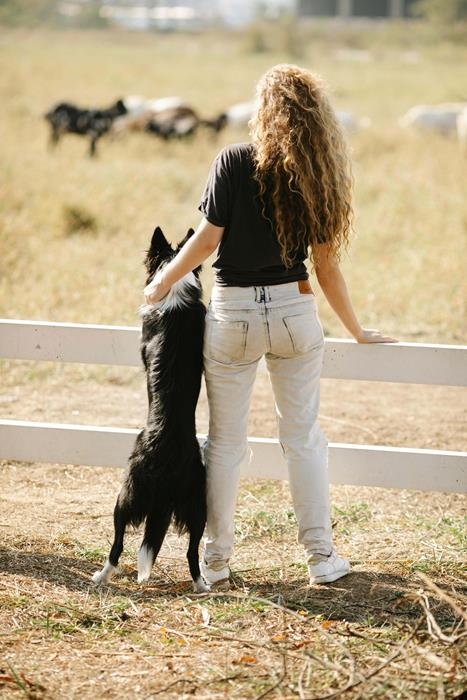
Homestead life isn't for every dog. Certain breeds thrive in this setting because they're naturally equipped with the following traits:
- Guarding Instincts: A good homestead dog will protect your animals, property, and family without being overly aggressive. Look for a breed that can differentiate between a real threat and a harmless visitor.
- Livestock-Friendly Temperament: Not every dog can safely coexist with chickens, goats, or sheep. Your ideal homestead dog should be calm and composed around livestock, avoiding any chase or harm.
- Adaptability: Homestead dogs need to be versatile. They'll spend time outdoors guarding your property but should also be comfortable hanging out with the family inside.
- Intelligence and Trainability: Rural dogs often need to make decisions independently. Breeds with sharp problem-solving skills and a willingness to learn are easier to train for specific tasks.
Top Breeds for Property Protection
When it comes to guarding your homestead, these breeds stand out for their loyalty, courage, and natural instincts to protect property and livestock:
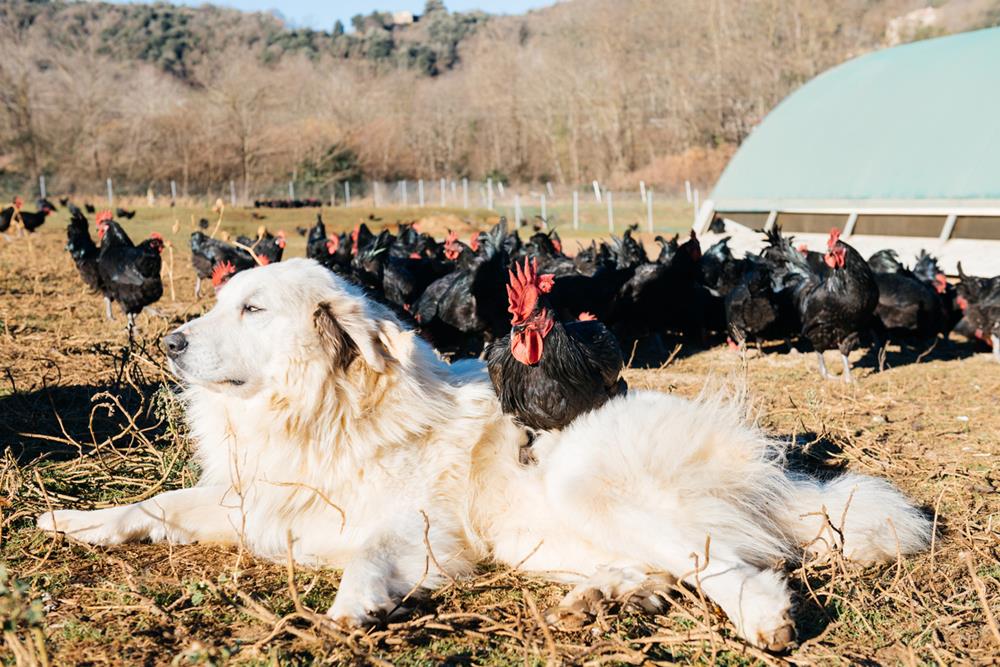
Great Pyrenees
Known as gentle giants, Great Pyrenees are exceptional livestock guardians. They are calm, watchful, and highly protective. Their thick double coat allows them to thrive in cold climates, and they are known to patrol their territory tirelessly at night. They are affectionate with their family but will not hesitate to stand their ground against predators like coyotes or bears.
- Size: 85–160 pounds
- Lifespan: 10–12 years
- Ideal For: Large homesteads, cold climates, and families with livestock.
Anatolian Shepherd
Bred in Turkey for protecting livestock, the Anatolian Shepherd is an independent and intelligent breed. They are alert and fearless, making them excellent guardians. They can cover large territories with ease, making them a great choice for sprawling homesteads.
- Size: 90–150 pounds
- Lifespan: 11–13 years
- Ideal For: Large properties, hot climates, and experienced dog owners.
Maremma Sheepdog
This Italian breed has been guarding livestock for centuries. Maremmas are loyal, hardworking, and protective without being aggressive. They bond closely with their charges, whether it's sheep, goats, or chickens.
- Size: 65–100 pounds
- Lifespan: 11–13 years
- Ideal For: Mid-to-large homesteads and protecting small livestock.
Kuvasz
The Kuvasz, a Hungarian breed, is known for its strength and bravery. Originally bred to guard flocks, this breed is independent and requires consistent training. They are highly territorial, making them ideal for protecting homesteads from intruders.
- Size: 70–115 pounds
- Lifespan: 10–12 years
- Ideal For: Families needing a protective but affectionate guardian.
Akbash Dog
Another Turkish breed, the Akbash, is known for its calm and composed demeanor. Despite their gentle nature with their family and livestock, they are formidable against predators, thanks to their size and vigilance.
- Size: 75–140 pounds
- Lifespan: 10–12 years
- Ideal For: Large properties with livestock and families needing a steady guardian.
Tibetan Mastiff
Tibetan Mastiffs are massive and imposing, making them a strong deterrent for intruders and predators. They are fiercely loyal and protective of their family and property. Their thick coat allows them to thrive in colder climates, but their independence requires experienced handling.
- Size: 85–160 pounds
- Lifespan: 12–15 years
- Ideal For: Cold climates and homesteads requiring strong visual deterrence.
Boerboel
The Boerboel, a South African mastiff, is a strong and fearless guardian. Known for their loyalty and confidence, they are excellent at protecting homesteads from both animal and human threats. Boerboels are also known to bond deeply with their families.
- Size: 110–200 pounds
- Lifespan: 9–11 years
- Ideal For: Medium-to-large homesteads with families who want a companion and protector.
Livestock-Friendly Dog Breeds
For homesteads with animals, these breeds excel at working alongside livestock, combining protective instincts with a calm temperament.
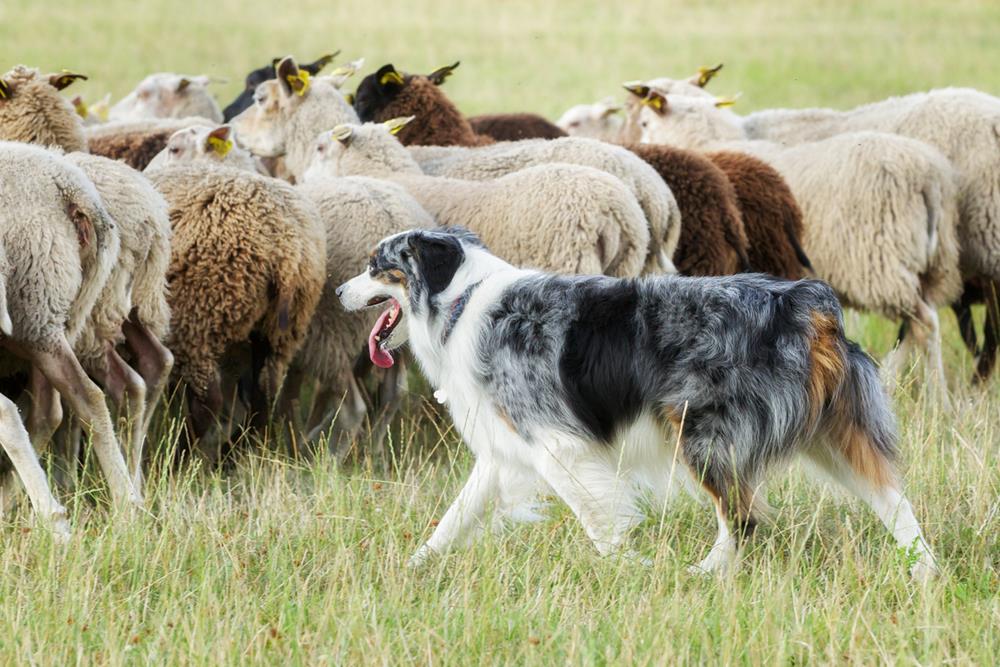
Border Collie
Border Collies are the quintessential herding dogs. Known for their intelligence and agility, they thrive on work and excel at managing livestock. Their high energy and strong focus make them perfect for farms where precision and quick decision-making are essential.
- Size: 30–55 pounds
- Lifespan: 12–15 years
- Ideal For: Active homesteads with sheep, goats, or poultry.
Australian Shepherd
Aussies are energetic and enthusiastic workers. They are highly trainable and adapt well to herding a variety of animals. Their playful demeanor also makes them great companions for families.
- Size: 40–65 pounds
- Lifespan: 12–15 years
- Ideal For: Small-to-medium homesteads with active families.
Great Pyrenees
While known as protectors, Great Pyrenees are also gentle with livestock. Their calm demeanor around animals makes them a dual-purpose dog, capable of guarding and coexisting peacefully with livestock.
Maremma Sheepdog
Maremmas are exceptional at forming bonds with their livestock. They take their role as protectors seriously and remain calm and patient with animals, even during stressful situations.
Corgi (Pembroke and Cardigan)
Despite their small size, Corgis are fearless herders. Originally bred to herd cattle, these compact dogs are quick and nimble, making them effective in managing stubborn livestock.
- Size: 25–38 pounds
- Lifespan: 12–15 years
- Ideal For: Smaller homesteads or those with poultry or smaller livestock.
Old English Sheepdog
Known for their shaggy coat and friendly nature, Old English Sheepdogs are reliable herders and excellent companions. They are calm around livestock and adapt well to the routines of a farm.
- Size: 60–100 pounds
- Lifespan: 10–12 years
- Ideal For: Homesteads with sheep or cattle.
Belgian Malinois
Often used in police and military work, Belgian Malinois are incredibly intelligent and versatile. On a homestead, they can be trained for both herding and guarding, making them a dual-purpose asset.
- Size: 40–80 pounds
- Lifespan: 14–16 years
- Ideal For: Experienced owners on large homesteads.
Shetland Sheepdog
Shetland Sheepdogs, or Shelties, are smaller herding dogs with big personalities. They are highly intelligent and responsive, making them excellent at herding sheep or goats.
- Size: 15–25 pounds
- Lifespan: 12–14 years
- Ideal For: Small homesteads or families new to herding dogs.
Australian Cattle Dog
Also known as Blue Heelers, these dogs are known for their stamina and determination. They're excellent herders and thrive on physical activity, making them a great choice for energetic farms.
- Size: 35–50 pounds
- Lifespan: 12–16 years
- Ideal For: Active homesteads with cattle or goats.
Training Your Homestead Guardian
Training is the cornerstone of having a reliable homestead dog. Start early, be consistent, and focus on building trust.
Basic Commands to Teach:
- "Come": Ensures your dog returns to you, even in distracting environments.
- "Stay": Essential for keeping them in place when needed.
- "Leave it": Stops them from chasing livestock or reacting to non-threats.
Socialization Tips:
- Introduce your dog to livestock gradually. Let them observe the animals from a safe distance before bringing them closer.
- Reward positive interactions with treats and praise. This reinforces good behavior without encouraging aggression.
Preventing Problems:
- Herding dogs may instinctively nip at livestock to move them. Train them early to avoid this behavior unless it's necessary.
- Guarding breeds can become overprotective. Expose them to visitors and normal farm activity to prevent excessive reactivity.
Managing Multiple Dogs on a Homestead
Many homesteads benefit from having more than one dog. For example, you might keep a livestock guardian dog outdoors while an active herding dog helps with tasks.
Tips for Success:
- Establish a clear pack hierarchy. Dogs need to see you as the leader.
- Socialize your dogs with each other and your livestock.
- Provide enough space to prevent territorial disputes.
Multiple dogs can lighten the workload, but they also require careful management. Plan for their individual needs, including food, shelter, and exercise.
Health Considerations for Farm Dogs
Homestead dogs work hard, and their health is crucial to their success. Here's how to keep them in top shape:
- Nutrition: Feed them high-quality food that supports their energy needs. Working breeds often require more calories than a typical pet.
- Preventative Care: Schedule regular vet checkups and keep up with vaccinations and parasite prevention.
- Grooming: Breeds with thick coats, like Great Pyrenees, need regular brushing to prevent matting and overheating.
- Safety: Check your dog for injuries after a long day of work, especially if they've been roaming large areas.
Integrating Dogs Into Homestead Life
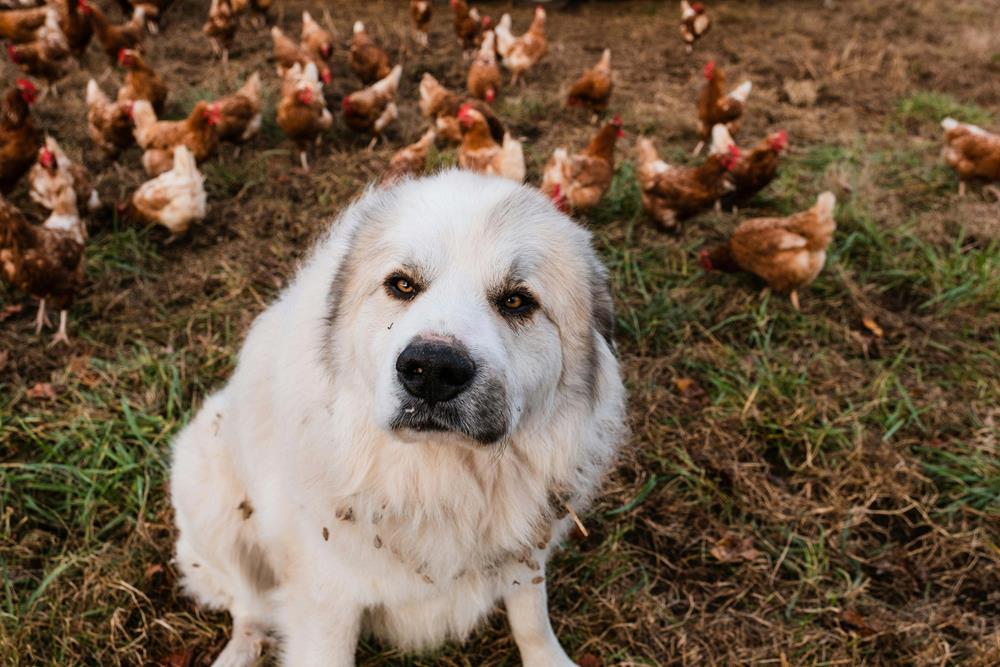
Your dog won't become a productive member of the homestead overnight. It takes time, patience, and a clear routine.
Daily Activities:
- Morning patrols of the property.
- Assisting with livestock herding or feeding.
- Rest breaks in shaded or sheltered areas.
- Evening checks to ensure animals are safe.
As your dog settles into its role, you'll notice something incredible: they're not just workers; they're part of the family. Their loyalty, intelligence, and instincts make them invaluable companions.
Conclusion
Finding the right dog for your homestead is about more than just picking a breed. It's about understanding your needs, investing in training, and committing to their care. Whether you need a vigilant guardian, a tireless herder, or a bit of both, the right dog can transform your homestead into a safer, more efficient place.
Choose wisely, train with patience, and enjoy the unmatched bond that comes with working alongside your canine partner. Your homestead will never feel the same—and that's a good thing.

